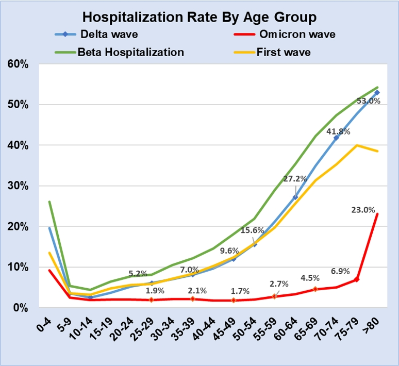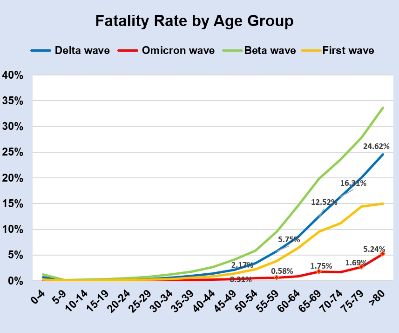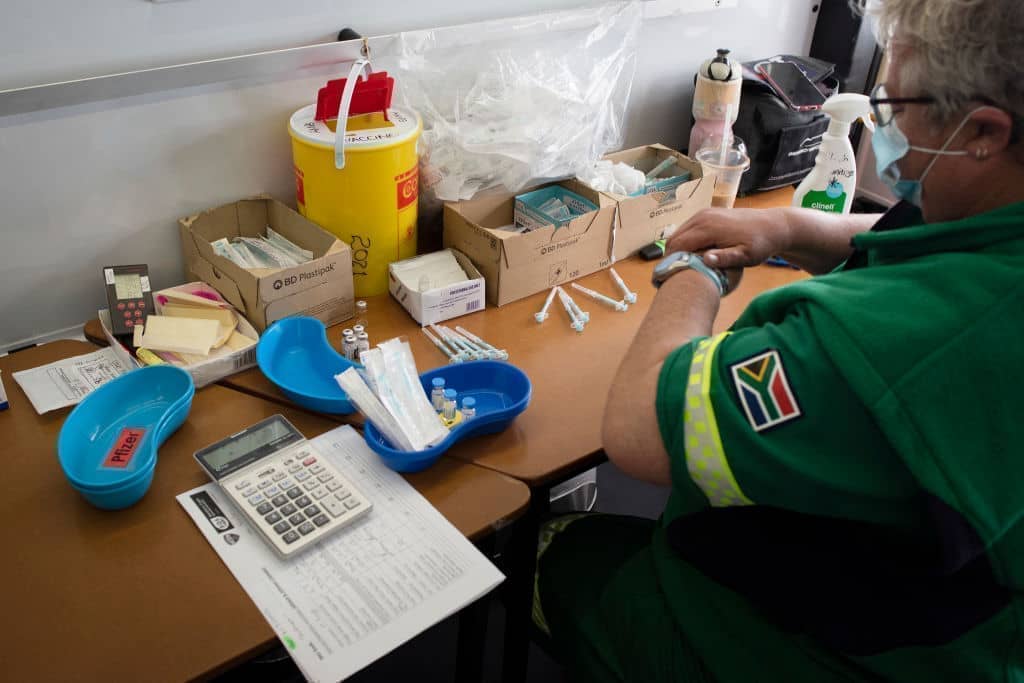It’s an open secret that ministers are nervous about advice from Sage, given its track record in exaggerating the risk posed by Covid. But where else to look? One answer is to the financial markets, who have only one question: is Omicron going to be genuinely more severe? If so then it’s time to sell. If not, it’s time to buy.
The problem is that market research is seldom made public and that gloomy news gets the most clicks – which, of course, creates a media bias. The FT, for example, has access to all of these market reports on Omicron (including JP Morgan’s sense-check of Sage) but it will certainly get the most interest in a story like its lead today: ‘Omicron no less severe, experts say.’ But what does the data say?
That’s what markets focus on as they try to cut through the headline hype. It’s hard to come across market research: it’s expensive. But I hope Jefferies Equity Research will forgive me if I share their deep dive into the openly-available South African data. It has thrown up some interesting facts.
It’s often said that South Africa’s experience is of limited use to Britain because it’s a younger country. But it’s possible to break down hospitalisation rates by age group. This shows that, adjusted for age, Omicron has far lower hospitalisation rates (perhaps due to vaccines). The Jefferies Research graph is as per below.

And from the Jefferies research note some pretty big multiples: a death ratio up to 10 times lower for the under-80s,
‘Additionally, deaths due to Omicron are also lower across all age groups. Compared with the Delta wave, we see a 10x reduction for pts w/ age of 0-4, a 2-10x reduction for age 5-9 and 75-79, and a 5x reduction for age >80.

The above charts may be from a financial analysis firm. But the summary is corroborated by the official reports from South Africa and the data from Pretoria.
Below is from South Africa’s latest Covid report (pdf), Table 15, ‘COVID-19 in-hospital case fatality ratio in first 25 days of third and fourth wave.’ Omicron is in red – and the difference to previous waves is clear.
The above chart is not something that Prof Neil Ferguson is likely to reference (or be asked about) next time that he’s on BBC Radio 4. But we do need to bear in mind that, whatever Omicron’s intrinsic properties, it is up against a wall of vaccinated people in the UK – and while vaccines may less effective against Omicron infections, they still offer robust protection against clinical illness and death. That’s what to focus on.
Far more South Africans are vaccinated now, of course, which may help explain the lower figure for Omicron. But this is even more true for Brits, with 95 per cent having antibodies against Covid. There are many caveats to this as with all early data (e.g. that hospital admissions in the early phase of a pandemic may be healthier as doctors are more likely to admit for monitoring). That said, you can compare the second week of infections. Just 1.7pc of Omicron cases ended up in hospital vs 19pc in the second week of Delta.
On the radio this morning, Prof Neil Ferguson raised the prospect of NHS hospitals being overwhelmed by Omicron unless there are more restrictions. This is quite possible – Covid does keep surprising us. But is it likely?
South Africa has had Omicron since November and while it is summer over there (an important fact to keep in mind) so far its hospitals have not been overwhelmed. This might change (note the latest uptick in red) but you can keep track using the graph below, which will be updated on The Spectator’s data hub every day. The next week – from now until Christmas – should give us more of an idea as to whether UK hospitals will follow this South African trajectory.
This article is free to read
To unlock more articles, subscribe to get 3 months of unlimited access for just $5







Comments
Join the debate for just £1 a month
Be part of the conversation with other Spectator readers by getting your first three months for £3.
UNLOCK ACCESS Just £1 a monthAlready a subscriber? Log in